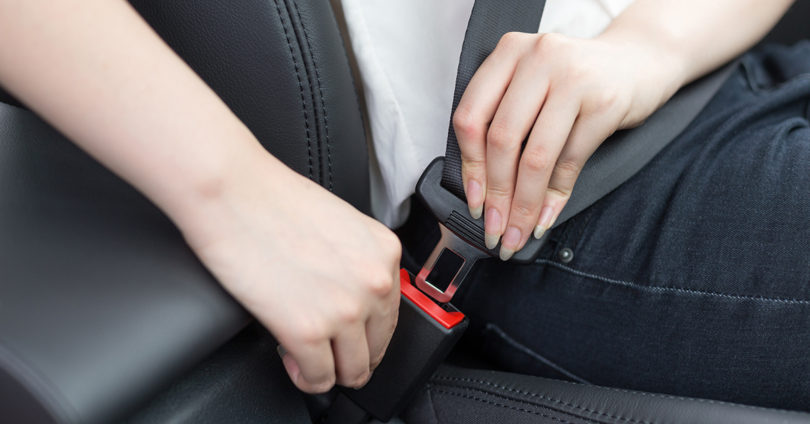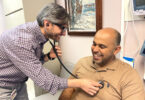Ever since I attended a presentation about injury prevention during my first year at Sunnybrook, I’ve been a lot more safety conscious. There are no accidents, they say at Sunnybrook’s Centre for Injury Prevention. These things are preventable. And that has stuck with me like glue. So, my family and friends may roll their eyes at me when I refuse to jaywalk, or I stop to move a pen from an already slippery floor, or I freak out at my dad for climbing his ladder to clean out the eaves troughs when no one else is home. But, believe me, I’m just doing my part to prevent injuries.
I chatted with Sharon Ramagnano, Manager, Trauma Services at Sunnybrook, who says the May long weekend marks the start of the “trauma season” – when emergency departments start seeing an increase in traumatic injuries.
“Our most common trauma mechanism of injury is from motor vehicle collisions followed by falls,” she said. “In the calendar year 2015, depending on how you view the data, we saw a total of 1,640 trauma patients of which motor vehicle collisions accounted for 25 per cent.”
This was tied with falls (either down the stairs, from a height, or from standing) also at 25 per cent, followed by stab injuries at 12 per cent and pedestrians struck at 11 per cent of Sunnybrook’s total trauma volume.
“The number of patients arriving to our trauma unit from motor vehicle collisions in the calendar year 2015 has risen by 43 per cent from the year 2014,” she says.
Here are Sharon’s tips for keeping yourself and your family safe this summer:
Stop and think.
“It’s important to think twice,” she said. “Take 30 seconds to assess risks.” Listen to your body alerting you to things that may be dangerous or not a good idea.
Do not drink or do drugs and drive.
“I think it still surprises all of us in the trauma and trauma prevention field at how many people still get behind the wheel of a car or motorized vehicle under the influence of drugs or alcohol or go as a passenger in a vehicle with someone who is under the influence of drugs or alcohol,” Sharon says. Do not do this. Arrange for a ride, take a cab or an Uber, take the bus. Whatever you do, do not drink or do drugs and drive.
Protect yourself.
“It also surprises us at the number of patients who still do not wear a seatbelt or wear a helmet for activities where there is risk,” Sharon said. “Always wear protective equipment even if you think the risk is low.” Wear a helmet when riding a bike. Use protective eye wear when doing DIY projects or playing sports. Wear a lifejacket. You can protect yourself in other ways too. Get your car maintenance checked on time. Have a buddy system for climbing ladders (told you, Dad).
Be a good role model for your kids.
“It is never too early to prepare your kids for their teen years and the temptation and risk that comes with these years,” Sharon says. “The best preparation is for the parents to be role models to their children from a very young age.” How? Include safety as a normal conversation and normal event. Wear your seatbelt. Wear your helmet. Cross the street at the crosswalk. Drink responsibly. Don’t text and drive. Be the safety-conscious person you want your kids or teens to be.
“Parents can further educate their children by learning about the risks, attending information sessions, reaching out online to various injury prevention platforms and speaking to their children’s schools, sports clubs, and their community programs about including injury prevention opportunities in the classroom, such as P.A.R.T.Y. Program and prevention of head injuries education.” (P.A.R.T.Y stands for Prevent Alcohol and Risk-related Trauma in Youth. It’s a one-day risk prevention program for high school students, which began at Sunnybrook and has now expanded to seven countries).
Whether you are staying in the city, heading away at your cottage or travelling the world this summer, Sharon has some advice that seems easy enough to follow:
“Just be alert and conscious of your surroundings so you can enjoy the summer months and physical activity without ending up visiting an Emergency Department or Trauma Unit.”
A version of this post appeared in the June edition of the Town Crier newspaper in Toronto.








